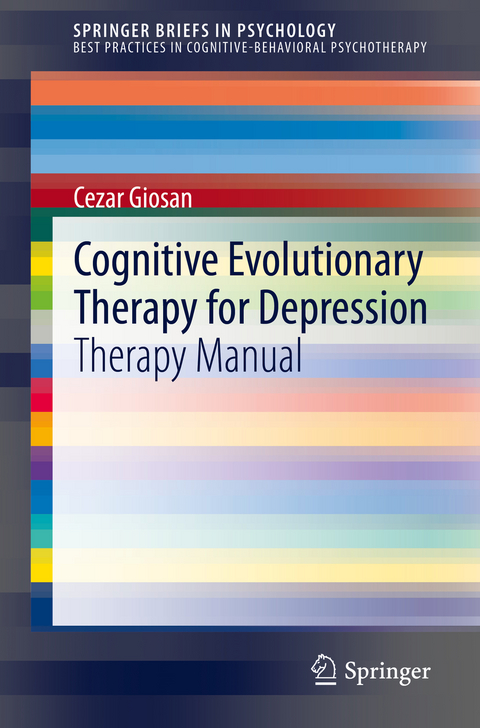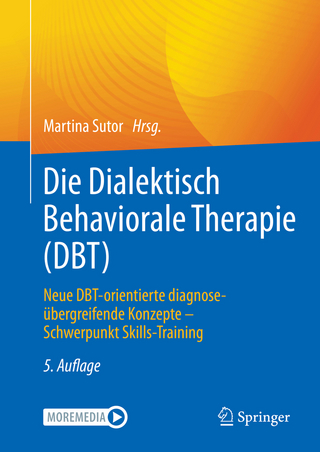
Cognitive Evolutionary Therapy for Depression
Springer International Publishing (Verlag)
978-3-030-38873-7 (ISBN)
Evolutionary psychology has recently made inroads in clinical psychology, bringing the understanding that, in some cases, mental symptoms are not manifestations of brain disorders, but rather evolved mechanisms that might function in overdrive or signal fitness problems. Thus, improvements in fitness may lead to improvements in those symptoms. Armed with such insights, this brief describes a comprehensive therapy protocol for depression - Cognitive Evolutionary Therapy (CET) -, which incorporates evolutionary understandings of this condition into well-validated cognitive techniques. CET starts with an evaluation of the evolutionary fitness of an individual, which represents the springboard for specific, evolutionary-driven behavioral and cognitive interventions. Based on the fitness evaluation, which takes place at intake, the CET therapist comes pre-equipped with a list of the patient's fitness problems and can start working on them very early on in therapy, potentially leading toshorter interventions and cost savings. This brief will appeal to clinical psychologists and therapists who frequently employ CBT principles in therapy, as well as to clinicians who want to incorporate insights from evolutionary disciplines into their approaches.
Cezar Giosan, PhD, Dr. Habil and faculty in the Department of Psychology at the University of Bucharest, has a doctorate in psychology from the New School University. He worked for a long time as a research psychologist in the US top-ranked Department of Psychiatry at Weill Medical School of Cornell University. Dr. Giosan has authored dozens of peer-reviewed publications in impact journals, including studies on the applications of evolutionary psychology in psychological interventions. He has tested, in premiere, in the form of a Randomized Clinical Trial, the efficacy of an evolutionary intervention for depression.
1.Evolutionary Psychology - A Brief Introduction.- 2.The Concept of Fitness in Evolutionary Psychology.- 3.Evolutionary Psychopathology.- 4.The Current Psychological Standard of Care in Depression.- 5.Cognitive Evolutionary Therapy for Depression.- 6.Moral and Ethical Aspects in CET.- 7.Specific Aspects Related to CET.- 8.The Evolutionary Fitness Scale.- 9.The General Structure of CET and Examples of Evolutionary Interventions.- 10.Appendix 1: Nutrition.- 11.Appendix 2: Physical Activity.
| Erscheinungsdatum | 25.02.2020 |
|---|---|
| Reihe/Serie | Best Practices in Cognitive-Behavioral Psychotherapy | SpringerBriefs in Psychology |
| Zusatzinfo | VIII, 68 p. 18 illus. |
| Verlagsort | Cham |
| Sprache | englisch |
| Maße | 155 x 235 mm |
| Gewicht | 135 g |
| Themenwelt | Geisteswissenschaften ► Psychologie ► Angst / Depression / Zwang |
| Geisteswissenschaften ► Psychologie ► Klinische Psychologie | |
| Geisteswissenschaften ► Psychologie ► Persönlichkeitsstörungen | |
| Medizin / Pharmazie ► Gesundheitsfachberufe | |
| Medizin / Pharmazie ► Medizinische Fachgebiete ► Psychiatrie / Psychotherapie | |
| Schlagworte | CBT • Cognitive-behavioral therapy • cognitive therapy • Darwinian psychotherapy • Depression • evolutionary interventions • Evolutionary Psychology • evolutionary psychopathology • evolutionary psychotherapy • Fitness • randomized clinical trials • RCT • therapy outcomes • Trials |
| ISBN-10 | 3-030-38873-5 / 3030388735 |
| ISBN-13 | 978-3-030-38873-7 / 9783030388737 |
| Zustand | Neuware |
| Haben Sie eine Frage zum Produkt? |
aus dem Bereich


